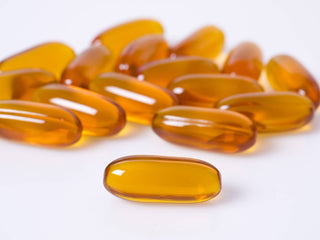Fish oil supplements may reduce the risk of breast cancer, report researchers in Cancer Epidemiology, Biomarkers & Prevention, a journal of the American Association for Cancer Research.
This was the first prospective study that investigated the association between long term specialty supplement (non-vitamin, non-mineral) use and breast cancer risk. Participants were members of VITAL†, a cohort study designed to investigate the association of vitamin, mineral and specialty supplements with cancer risk.
Over 35,000 postmenopausal women between 50 to 76 years of age participated in the breast cancer study. The women completed a 24-page a baseline questionnaire regarding their specialty supplement use during the prior 10-year period. The questions related to recency (current vs. past), frequency (days/week) and duration (years) of specialty supplement use. Information on dose was not requested of participants.
Using data from the Surveillance, Epidemiology and End Results†† registry, 880 cases of invasive breast cancer were recorded during the 6-year average follow-up time.
After adjusting for other breast cancer risk factors such as older age, heavy drinking and obesity, women who regularly took fish oil supplements were 32% less likely of developing breast cancer compared with non-users. The risk reduction was only related to invasive ductal breast cancer, the most common type that forms in the milk ducts.
No observed association was found between breast cancer and other anti-inflammatory supplements including glucosamine, chondroitin, MSM or grape seed. There was also no breast cancer association with supplements taken to relieve menopausal symptoms including black cohosh, dong quai, soy and St. John’s Wort. The other specialty supplements studied (acidophilus, CoQ10, garlic, ginkgo biloba, ginseng and melatonin) were also not associated with reduction in risk.
Researchers theorized that fish oil may be associated with a reduction of breast cancer risk because of its anti-inflammatory properties. The study authors noted that the observations warrant further study of fish oil supplements, focused on the timing of exposure and dose as well as mechanisms of action by tumor stage or type.
The Bottom Line
The past decade has seen a surge in popularity of non-vitamin, non-mineral specialty supplements, some of which may have anti-inflammatory or anticancer properties. Chronic inflammation has been linked to factors associated with cancer development.
Although the findings are quite interesting, study authors urged consumers to not rely on fish oil supplements to reduce breast cancer risk.
†The VITamin D and OmegA-3 TriaL (VITAL) is a research study in 20,000 U.S. men and women investigating whether taking daily dietary supplements of vitamin D (about 2000 IU) or fish oil (about 1 gram of omega-3 fatty acids) reduces the risk of developing cancer, heart disease, and stroke in people who do not have a prior history of these illnesses. The study will be funded by the National Institutes of Health and is being run by Harvard Medical School and the Brigham and Women’s Hospital in Boston, MA. Recruitment for the study began in January 2010.
††The Surveillance, Epidemiology and End Results (SEER) Program of the National Cancer Institute is a source of information on cancer incidence and survival in the United States.

